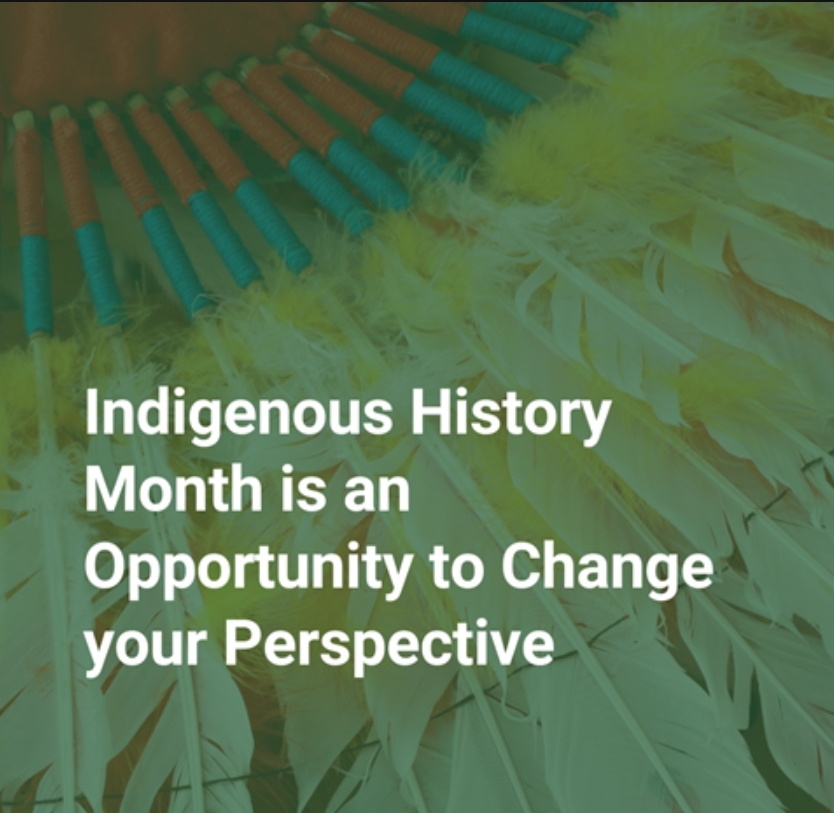
Indigenous History Month is an Opportunity to Change your Perspective
- Post by: Nakita Valerio
- June 21, 2023
- No Comment
This article was originally published here: https://www.ualberta.ca/chester-ronning-centre/news/2023/indigenous-history-month-is-an-opportunity-to-change-your-perspective.html
Nakita Valerio – June 21, 2023
The beginning of June marked the start of Indigenous History Month – an opportunity to listen to, learn from, and amplify Indigenous voices and stories within all families and communities.
It’s been two years since the discoveries of mass graves of Indigenous children started at residential schools and while many settler folks bought their orange shirts and got their car decals proclaiming Every Child Matters, that might be where it ended. It’s a decent start but just the beginning of what must be a lifelong commitment to learning about and sounding the truth of what has happened on this land and taking concrete steps to being enablers of better systems going forward. Indigenous History Month rightfully centers the thousands of years of First Nations, Métis, and Inuit life and culture on this land and presents every settler with the opportunity to celebrate and respect histories, languages, and ways of life here while also looking inward and unsettling our own inner complacency in an inequitable colonial system we continue to benefit from.
I’m a full-time homeschooler to my two young daughters, and while Indigenous history, culture, and literature have always been a part of what we do, this school year in September, we decided to make it the center. Indigenous stories, film, art, culture, and history have been central in our home and our schedules for the past 42 weeks. Almost every field trip has revolved around visiting Indigenous historical sites or museums, and every trip to the book or education store has focused on finding new colouring books, art projects, and crafts from their Indigenous sections.
Every Monday, we visit the public library, and our routine is the same: find EPL’s “Indigenous Collection” sticker on every book we can and we usually end up with a box full to take home and read before bed each evening. My 9-year-old even started the Indigenous Canada online course from the University of Alberta and has paired that work with listening to countless First Nations, Métis, and Inuit folks tell their stories in podcasts and vlogs. We’ve done a lot but still haven’t even gone past the tip of the iceberg.
And still, the results have been astounding for me, driving home just how important this work really is: it’s not only that my children now scream in excitement every time they see a Métis flag from our car window, or that they can see a red dress display and tell you what it means, it’s not even that my oldest daughter chose a hand-embroidered pair of traditional fur mittens as her only souvenir from a trip to the mountains; those are the little details that demonstrate how their inner perceptions of political awareness and their cultural appreciation and celebration are shaping up. It’s also that their worldviews are not mired in the dislocation of Indigenous history as mine were as a settler child growing up on the prairies, made forever peripheral or subtextual to Canada’s story.
Rather, because of this work, I clearly see in my children that it’s the colonial history that is the footnote – a horrific and ongoing aberration in the history of peoples on this land. Residential schools, the ’60s scoop and child welfare are then not the only focus for “Indigenous studies” exclusively, but rather those events are part of colonial settler history, here at the late hour in the timespan of human life on this land.
Increasing my children’s awareness of the length of history on this land and the diversity within Indigenous communities that have lived here is not only part of a religious injunction for us as Muslims so that people of different walks of life can “know each other;” it not only helps them better understand what was nearly extinguished and lost here to the colonial project of Canada; but it also reminds them that Indigenous folks that they have learned from all year are still here and helps them imagine a better future is possible where the Truth and the spirit of friendship on this land prevails. With this in mind, I can’t help but wonder what things might be like on a larger societal scale if families and schools took Indigenous History Month seriously as the opportunity it is to truly change their perspective.
Nakita Valerio is the Research Director for the Institute for Religious and Socio-Political Studies, a doctoral student in Religious Studies at the University of Alberta, and is an advisor and research fellow with the Chester Ronning Center for the Study of Religion and Public Life.
